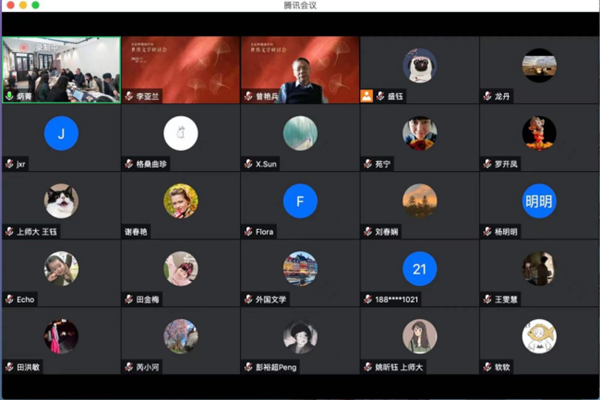- Research
- Research Centers
- Journals
- Admission
- Introduction
- Programs
- Application
- Alumni & Giving
- Alumni Club
- Giving
The Seminar on World Literature from a Multilingual Perspective was held from Nov 5 to 6.
It was a high-end academic conference of Beijing Foreign Studies University (BFSU) supported by a special fund for fundamental scientific research fees for central universities.
Themed on “the relationship between world literature, critical theory and Chinese and foreign literature and culture in the globalization process”, the seminar was attended online and onsite by more than 60 experts and scholars from 13 domestic universities and research institutions, such as Peking University, Renmin University of China, the Institute of Foreign Literature at the Chinese Academy of Social Sciences and BFSU.

The Seminar on World Literature from a Multilingual Perspective is held from Nov 5 to 6. [Photo/bfsu.edu.cn]
The seminar included two keynote speech sessions and four discussions in more than 10 languages, including English, Russian, German, French, Japanese, Hausa, Bengali, Italian, Finnish, Polish and Urdu.
Experts and scholars presented their latest research results on themes such as “world literature theories and concepts from a multilingual perspective", "Chinese literature in world literature", "world literature and the building of a community with a shared future for mankind", "communication, development and innovation of critical theory from a multilingual perspective" and "national and regional literature moving towards the world".
The convening of the seminar was a practical measure taken by BFSU to promote the development of philosophy and social sciences. It is of great significance in facilitating exchanges among languages, broadening research horizons, and re-recognizing and re-building a literary knowledge system.
With the increasing deepening of globalization, literary research should be considered from a broader vision, said attendees, who agreed that combining Marxism with traditional Chinese culture, rebuilding and reevaluating world literature from diverse perspectives, recognizing the global system, reconstructing the knowledge system based on global historical changes, and integrating Chinese and Western hermeneutics with the latest theories will help build a community with a shared future for mankind.